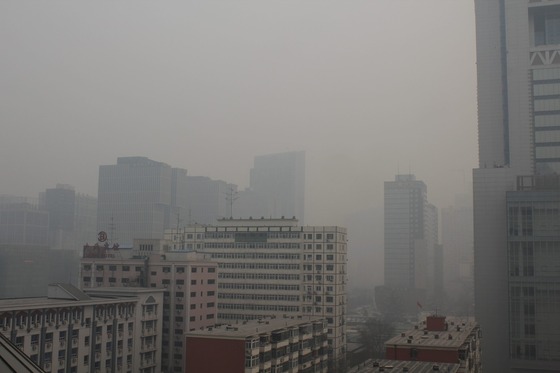I just got this email from a reader, and I wanted to share it, as well as my response.
Dear Richard,
This will seem like a strange email, but if you could answer my questions, then I would be extremely grateful.
How do you find a balance between liking China, for the good things you can find there, and hating China, for all the wrong things that are happening there?
I’m Chinese American. I was born in America, and grew up hearing toned-down, child-friendly, good, nice stories about China. So when I finally realized what was happening over there, I was shocked, and extremely conflicted between pride and disgust. On one hand, it’s where my family and culture came from. On the other hand, everything that happens over there conflicts with my values. I now read blogs about China, hoping to keep up to date about the country, to know everything about it, condemn it for what it does, hope for it’s future…but it seems there’s never anything good. China’s always getting worse, and by now, I’ve pretty much lost hope for the China.
It’s tempting to just hate the country and cut all my ties to it. Go to an extreme and wish for Tibet, Xinjiang, Taiwan, and maybe even Hong Kong and Macau to go independent when it can, and the blood of all its communist leaders. Call myself American and the only thing Chinese about me would be the cultural and traditional aspects of it. But I can’t do that, because that’s not really want I want or believe.
I’ve been reading your blog over two years now. You are disappointed at China, yet still happy whatever something positive happens. (Well, happy’s not the right word, but I can’t think of an appropriate word…) How do you do that? Keep hope that maybe one day, something would change, but for now, bear to watch the humiliation and horrible things China is going through and doing? (is it because you’re not Chinese, and if something happens, well, it’s not your country/group of people/identity that’s doing it? Forgive me if I’m wrong)
Thank you for your time. I eagerly await your reply.
[Name]
Interesting email. It’s always a challenge, reconciling your feelings toward China, reconciling your knowledge of some of the darker things that go one there with your love of living there, reconciling your complaints with your admiration. Then again, how different is that from the US? Sometime I think it’s just a matter of degree (mainly because rule of law and freedom of speech make such a huge difference).
Anyway, here’s my sentimental response.
I love China. I am going there on a trip in two weeks and plan to move back to Beijing within the next two months. [Note: That is not written in stone.]
It’s the Chinese government and its culture of corruption and propaganda I can’t stand. But I first moved to China in 2002 and over the past 9 years I have seen the country make huge strides, socially and politically. It is a dynamic, vibrant, inspiring culture and there is nowhere else I’d rather live, except maybe NYC if I were a millionaire.
It’s normal to be conflicted about China because it is such a complex and often unusual country, a country in the midst of incredibly rapid change. No one can figure it out and there’s no way to define what China actually is, because it’s a work in progress and a phenomenon in motion. Lots of bad things happen there, but lots of good things, too. People’s lives are generally much better than 30 years ago. So don’t be afraid to love China, while accepting its faults and problems and strangeness. It’s still one of the greatest countries on the planet.
Thanks for writing and I hope that helps.
Richard
Sentimental, and I can catalog all the cliches. but it’s still from the heart. And for the record, I can’t stand America’s government either, especially now. (My faith in the US government has been in a free-fall since the day Gore lost the 2000 election; Obama has boosted my faith only nominally – at least he’s not a Republican.) Who can say they’re not conflicted about America, and about China?
I’ll arrive in Beijing on April 7 and will be visiting several cities. If anyone wants to get together let me know.

Comments